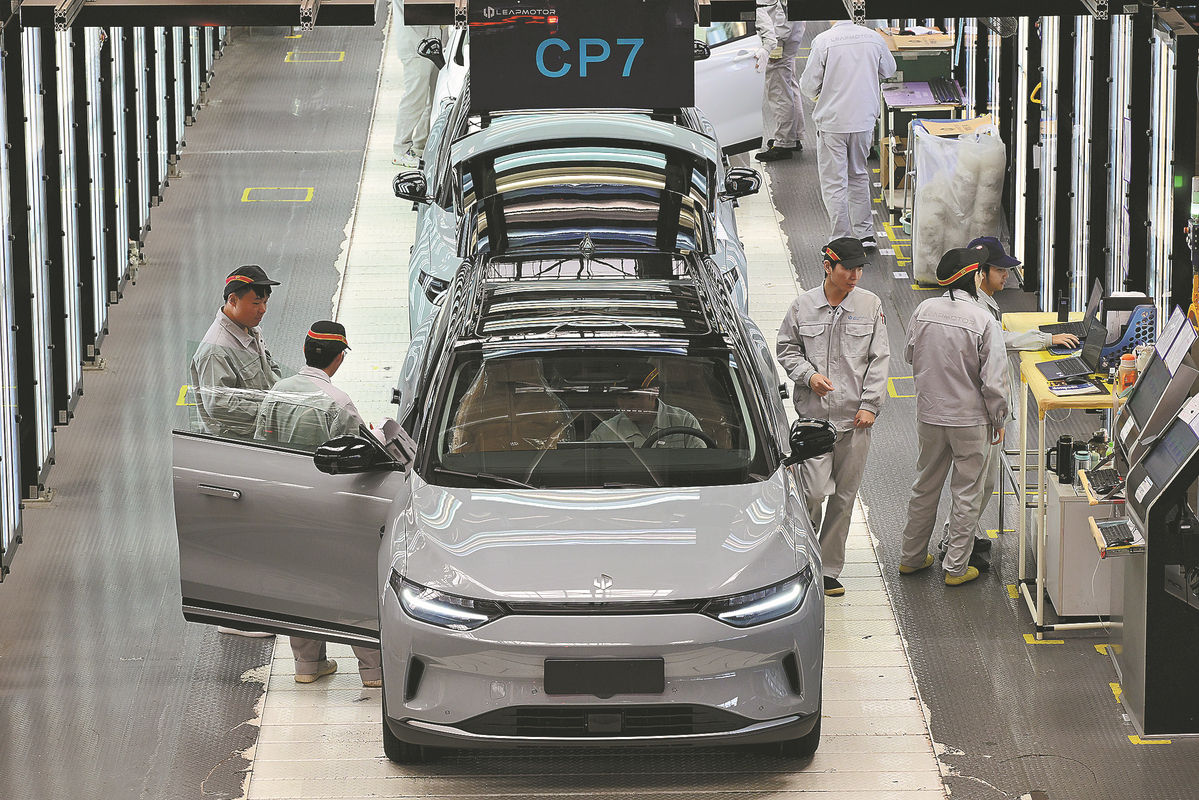Innovation speed key to NEV success in 2025
Nation tops world list for 9 straight years in output, sales


Exports have remained a strong growth driver. From January to November, China shipped a total of 1.17 million NEVs overseas, an increase of 24.6 percent from a year ago, with Belgium, Brazil and the United Kingdom being the top three export destinations, Cui said.
Although export growth to Europe has slowed due to the imposition of additional tariffs, Cui forecasts a rebound in the future as the market gradually adjusts to fallouts from the tariff hikes.
For the entirety of 2024, NEV sales were expected to exceed 13 million units, pushing the country's total auto sales to over 31 million units, said Chen Shihua, deputy secretary-general of the CAAM.
Heading into 2025, China's NEV manufacturers will encounter a plethora of growth opportunities from both domestic and overseas markets, according to analysts.
At the Central Economic Work Conference held in early December, the Chinese leadership reiterated the need to ramp up the green transition in economic and social development, and outlined measures to better track carbon footprints and curb emissions.
Meanwhile, China has begun to tighten its use of fossil fuels, pledging in an August guideline to increase the share of non-fossil energy in total energy consumption to around a quarter by 2030.
Globally, electric vehicles are expected to account for around 45 percent of auto sales in 2030 and 55 percent in 2035, according to a recent article on the International Energy Agency website.
The document stated that a crucial factor in the growth pace across markets will be the affordability of EVs, citing China as an example where affordable models have boosted the mass adoption of EVs.
Following a series of landmark achievements last year, restructuring and innovation will be the major themes for China's NEV makers in 2025, according to analysts.
Chinese automakers now face intense market competition, where the speed and effectiveness of innovation are key to standing out from the crowd.
Automakers should prioritize technological innovation, drive industrial progress through innovative advances, and focus on industrial upgrading and high-quality development, said Su Bo, director of the National Expert Committee on Intelligent Manufacturing.
Xinhua
























